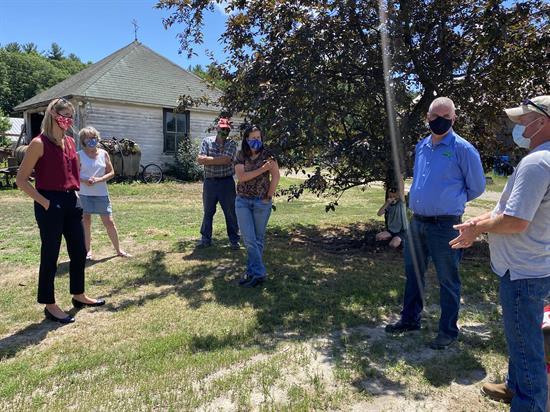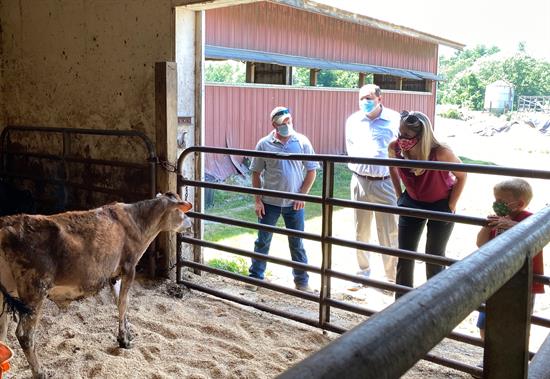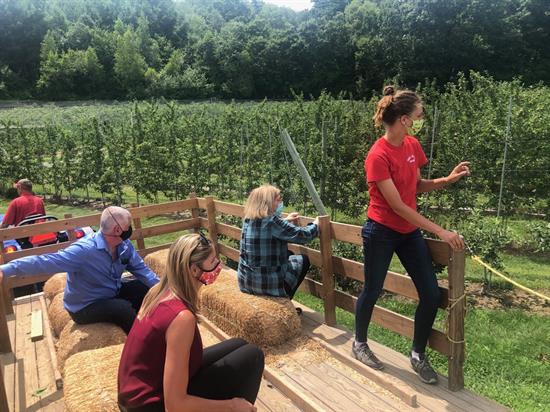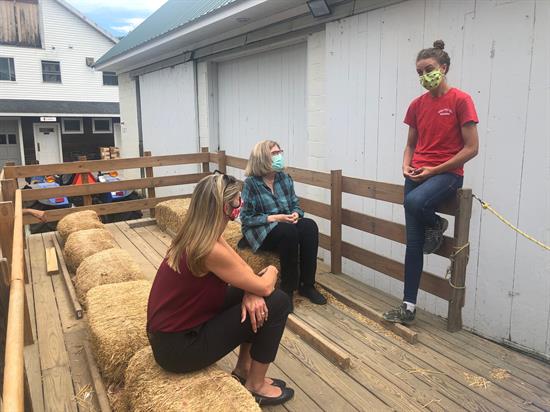Press Releases
Trahan Concludes Farm Tour in Support of Coronavirus Relief for Local Farmers
Washington,
July 14, 2020
LOWELL, MA – Today, Congresswoman Lori Trahan (MA-03) concluded her listening tour of farms in Littleton, Stow, and Fitchburg, where she heard from farmers and workers about difficulties their businesses face because of the coronavirus pandemic. After hearing their concerns, she called on Senate Majority Leader Mitch McConnell to pass the Heroes Act to provide additional relief to workers and small businesses in need of more help. “The devastating impact of COVID-19 can be seen across almost every sector of our economy, and despite their hard work in the face of incredible adversity, the 842 farms in the Third District have not been entirely immune from the pandemic’s economic toll. I’m grateful to the farmers for taking the time today to share the effects this crisis is having on their businesses. My job is to listen to their experiences and make sure they’re heard in Washington,” Congresswoman Trahan said. “I’m proud to have already cast my vote for the Heroes Act, which delivers on many of the issues we discussed today. Now, Mitch McConnell needs to get off the sidelines and pass this bill so that farmers, working families, health care heroes, first responders, and more can get the additional relief they desperately need,” Congresswoman Trahan continued. Stops on Trahan’s listening tour included Idyllvale Farm in Littleton, Honey Pot Hill Orchards in Stow, and Hollis Hills Farm in Fitchburg. She was joined in Littleton by State Senator Jamie Eldridge (D-Middlesex & Worcester District), in Stow by State Representative Kate Hogan (D-3rd Middlesex), and in Fitchburg by Mayor Stephen DiNatale and State Representative Stephan Hay (D-3rd Worcester). Trahan has worked with farmers across the Third District in recent months to ensure that they have access to the relief they need to weather the economic storm created by the COVID-19. In late March, she voted for the CARES Act, which made many farmers eligible for small business relief through the newly created Paycheck Protection Program. Following discussions with farmers in Harvard and Lunenburg about how they were being unfairly excluded from relief through the Small Business Administration’s Economic Injury Disaster Loan program, Trahan successfully advocated for the inclusion of a provision in the interim relief package in April to make farms with less than 500 employees eligible for grants of up to $10,000 and low-interest loans of up to $2 million through the program. Most recently, Trahan supported passage of the Heroes Act, which included a number of provisions important to Massachusetts farmers, including:
Trahan has repeatedly called on Leader McConnell to bring up the Heroes Act for a vote in the Senate since the bill passed the House in mid-May. Photos from each of the visits are attached.
### |






